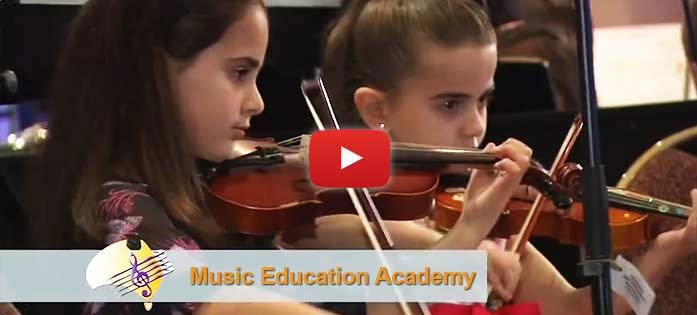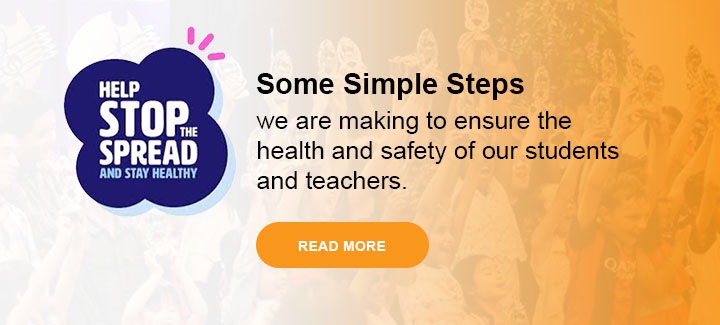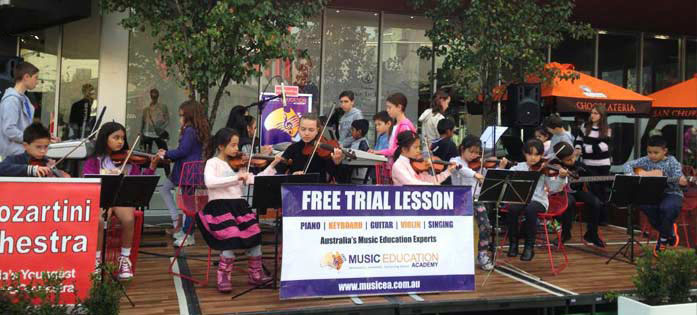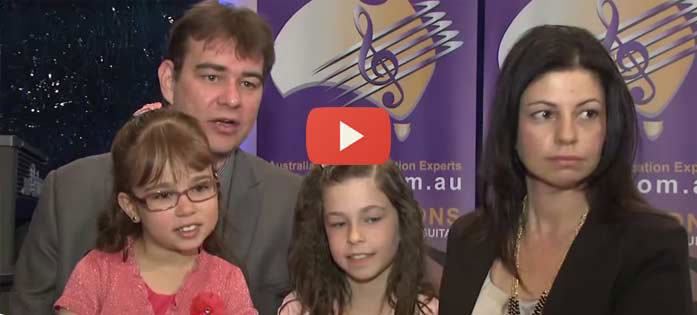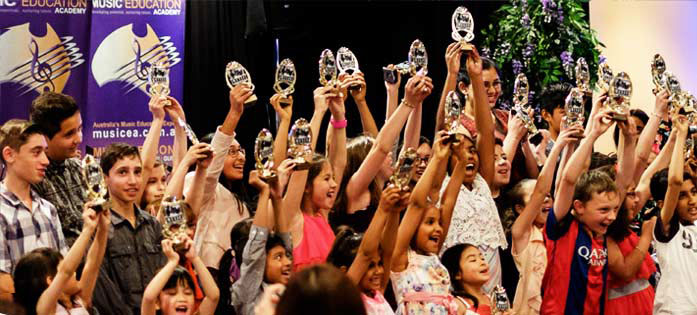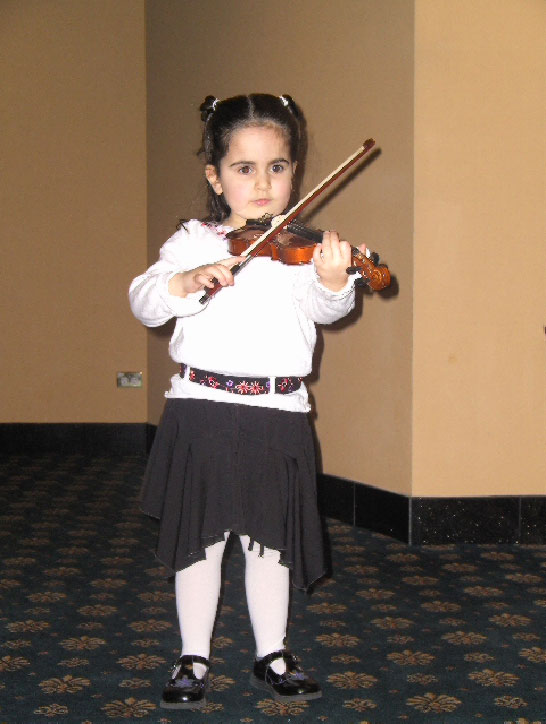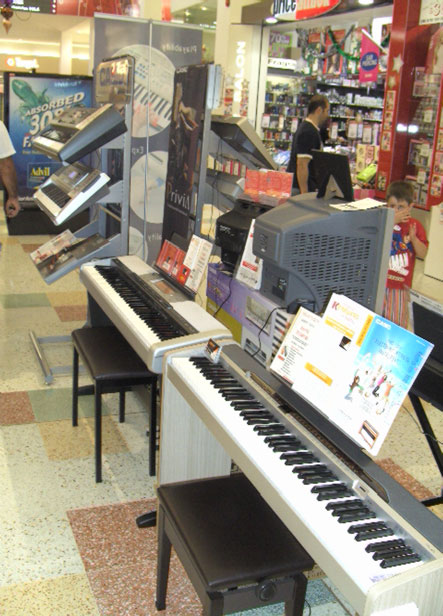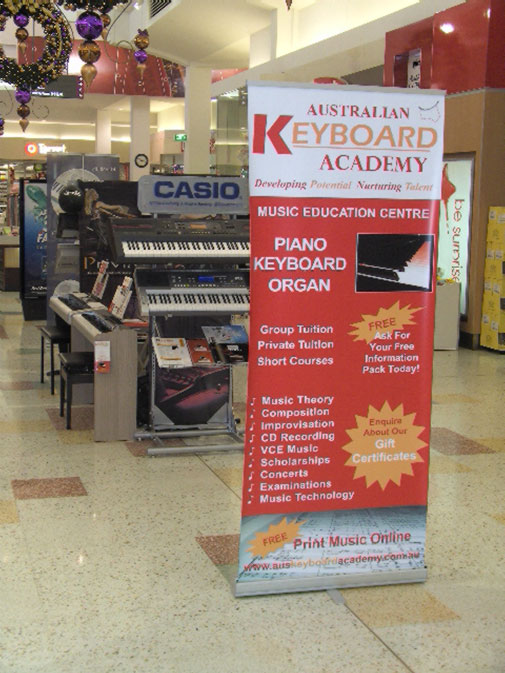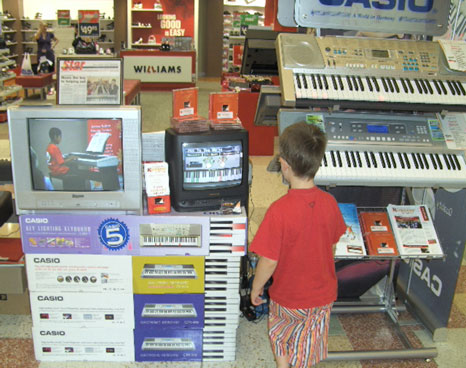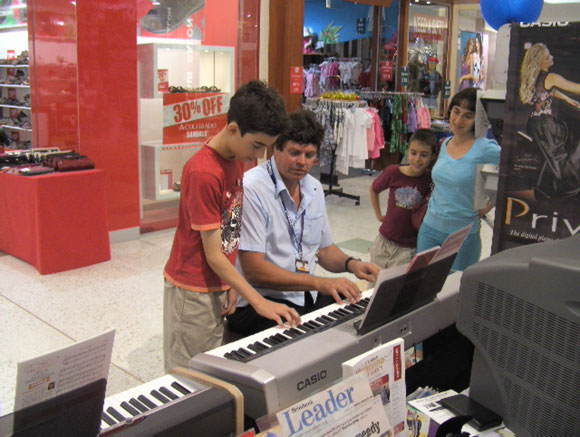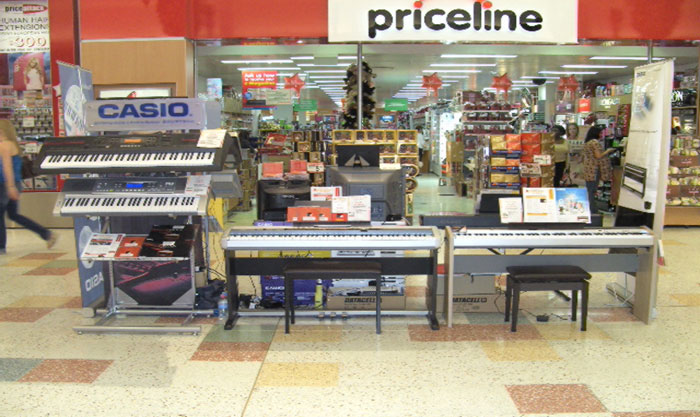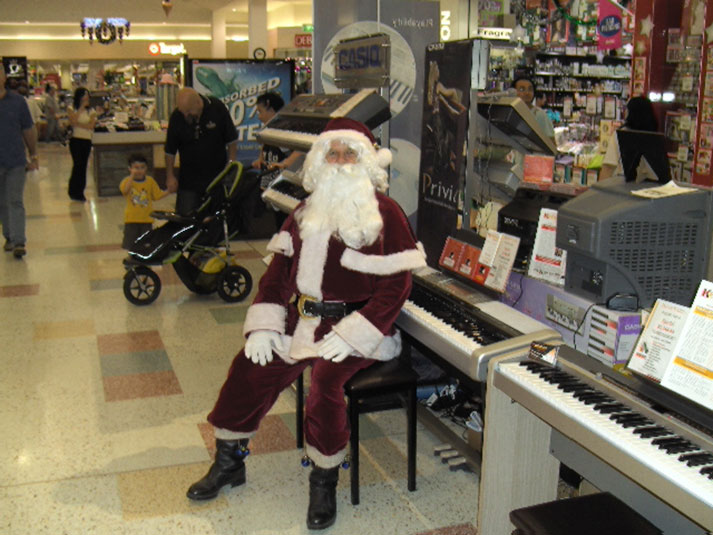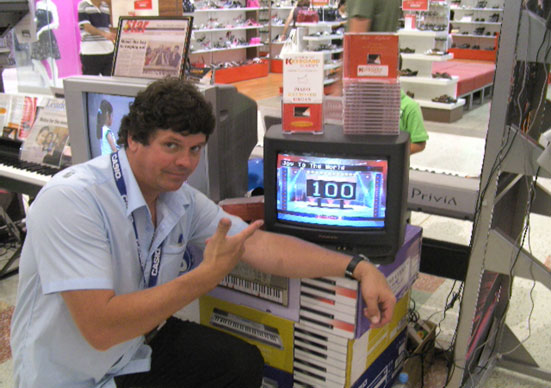
Supporting The Royal Children’s Hospital
After the recent success of the “Supporting Children in Brimbank” fundraising concert in October last year, a series of three fundraising concerts have been organised with the support from Taylors Lakes Hotel and Copperfield Family Centre.
Australian Keyboard Academy students will perform three concerts in 2008 raising money for the Good Friday Appeal, Daffodil Day and The Smith Family. Each concert is expected to raise well over $1000.00 for charity.
The concerts are an excellent vehicle to showcase the local talent and hard work students put into their music. Students from as young as three years of age will perform.
The aim of the concerts are to promote the benefits of music education in young children and within the community.
Research consistently illustrates that, “Children who study music tend to do better academically than those who do not study music. And they tend to behave more responsibly as students if given the opportunity to study music – even if they are from at-risk populations” Wilcox, (1999:33). Learning music improves students cognitive development, develops critical thinking, self discipline skills, self esteem and their ability to work in teams.
I would like to extend an invitation to all local music students (guitarists, violinist, singers, woodwind players) in Brimbank to perform at either fundraising concert. The fundraising concert is all about celebrating music education. So come join the Australian Keyboard Academy students in a memorable afternoon of music making and celebration. For further information regarding performing at the fundraising concerts, supporting the fundraising concerts and ticket sales contact Lorenzo on 9310 9532.
Welcome back
Welcome back to what is tipped to be a year full of music making. With three concerts currently scheduled for 2008 there is plenty of opportunity of all student to perform. Important that parents takes an active interest in dates, times and deadlines for each concert and other opportunities that are made available for your child. This year is all about raising awareness of the benefits of music education in children’s lives and our community. I look forward to an exciting year ahead, celebrating piano-keyboard music education.
MUSIC – the right of every child!

Every primary school to
become a musical school
On 21st November 2007 England launched a national campaign to make every primary school come alive with the sound of music. This will involve a £332 million investment in choirs, orchestras, new instruments, performance and free music lessons. The Government has gained support from music professionals, the likes of Andrew Lloyd Webber, Julian Lloyd Webber, pop star Jamelia, and composer Howard Goodall.
“Whether you want to take up music professionally or just for fun, never has it been more important to learn to play a musical instrument than now” said Andrew Lloyd Webber.
Secretary of State for Children, Schools and families Ed Balls said: “Every child from all backgrounds should have the chance to perform, play an instrument or sing and I want every school to become a musical school”.
for full press release visit:
http://www.dcsf.gov.uk:80/pns/DisplayPN.cgi?pn_id=2007_0216
Unanimous support for boosting
music education in schools

On the 3rd of March 2005 – The U.S. House of Representatives passed a Concurrent Resolution that says music instruction “is an important component of a well-rounded academic curriculum and should be available to every student in every school”.
for full press release visit:
https://www.namm.org/

Why is Australia not following the
examples of America and England?
Parents of primary aged children need to ask, What is the Australian Government doing to support my child to learn music at school?
In 2005 the Australian Government commissioned a report on the status of music education in Australian schools. In a nutshell, the report revealed that, “while there are examples of excellent music education in schools, many Australian students miss out on effective music education because of the lack of equity of access; lack of quality of provision; and, the poor status of music in many schools” (Pascoe et al; 2005:V). The report highlights the importance of ensuring effective music education is made available for all primary school aged children.
Project ambassador and songwriter for ‘Music Count Us In’ John Foreman said, “I see and feel the positive effects of active music making every day. We can do even more for our kids by giving each one of them an effective music education at school. We’re all the richer for a society which values music as part of every child’s education.”.
Now is the time for parents, educators and the community to lobbying the Australian Government for more music in our schools. Music Count Us In website provides information kits and resources you can present to your principal, parent group, and local MP to strengthen the case for effective music education for all Australian school children. After all, Music is the right of every child!
for full press release visit:
http://www.musiccountusin.org.au
Music Council of Australia
Play For Life
http://www.musicplayforlife.org
Piano, Digital Piano or Keyboard.
Which is best for my Child?
There is a misunderstanding in the term ‘keyboard. The term keyboard relates to the black and white keys found on all pianos, digital pianos, portable keyboards and organs, and are therefore, all known as keyboard instruments. Learning to play a keyboard instrument is identical regardless of the type of keyboard instrument you own. This is because in the first years of learning to play any keyboard instrument, learning to read music and the technique applied are identical. A keyboard instrument (as any musical instrument) provides a practical application in learning to read music and this is fundamental in the first years of music education.
A number of misinformed advise is given to parents of beginner students embarking on learning a keyboard instrument that only a piano will do and that only certain keyboards instrument are suitable for music examinations. A qualified and experienced keyboard teacher can teach a student regardless of the keyboard instrument students may currently own or intend to own. The lack of professional development and knowledge of keyboard technology drives many keyboard teachers form embracing digital pianos and keyboards. We embrace the advancement of technology in motor vehicle safety, in communication (internet and mobile phones), why is the advancement in keyboard technology any different or viewed as a lesser option when learning a keyboard instrument?
Below are key points to consider when deciding to purchase a new keyboard instrument for learning:
Size of Keyboard
There are three standard sizes in keyboard instruments: 61 full size keys, 76 full size keys and 88 full size keys. Each size keyboard are suitable for different stages of musical development and age groups.
Stage of Musical Development
Although a number of factors can determine which size keyboard instrument will best suit your Child, the following table can provide same guidance.
| Keyboard Size | Beginner | Upgrade | Median Price~ |
| 61 Size keyboard | 3 – 12 years | after 2 years* | $300.00 |
| 76 Size keyboard | 13 – 18+ years | after 2 years* | $600.00 |
| 88 Digital Piano | Any age | not required^ | $2000.00 |
| 88 Upright Piano | Any age | not required^ | $4000.00 |
* Repertoire students may learn will require the full range of an 88 keyboard.
^ Unless upgrading from small piano to larger upright/grand, or from digital piano to upright/grand piano.
~ Prices varying according to modal, brands and features.
A common statement echoed from parents is “I’m not prepared to invest thousands on a piano or digital piano in the situation that my Child decides not to pursue music after a year”. It is for this exact reason that many parents prefer to purchase 61/76 size keyboards and even though an upgrade is required later, owning a portable keyboard does provide many advantages, such as students can take them to school, church groups, and perform with their friends and other family members. The potential from keyboards and digital pianos are endless and can provide much creative possibilities. The differences between pianos, digital pianos and keyboards will be discussed in issue 8. If you would like further information and advise in selecting an appropriate keyboard instrument please contact Lorenzo on 9310 9532.
WATERGARDENS PROMOTION
In December the AKA launched its display of Casio digital pianos and keyboards at Watergardens Town Centre. Over the course of one week I spoke to over one hundred people involved in music education, music students, music hobbyists and parents requesting information regarding keyboard music education.
Three most common questions:
Q1. At what age can my child start to learn piano/keyboards?
A: I have students as young as three years of age to adults.
Q2: How long does it take to learn to play the piano-keyboard?
A: At their first lesson students will be able to play a song. However, music education is a long-term commitment. Students who commit a minimum of 10 years will experience a life-long enjoyment and fulfilment with their music and be able to contribute to their community through music participation.
Q3: Is learning to play the piano-keyboard difficult?
A: It is not difficult to learn to play any musical instrument. The challenge is making the time to practice at least 15 – 30 minutes every day.
I would like to thank Anthony Stary from Centre Management Watergardens Town Centre, Nicole Hawkins and David Dobell from Casio for their assistance.
Above Santa after his performance of Jingle Bells & Silent Night. Congratulations to Mr David Dobell Casio Representative and music educator, scoring 100% on the LK300TV Casio Keyboard.
